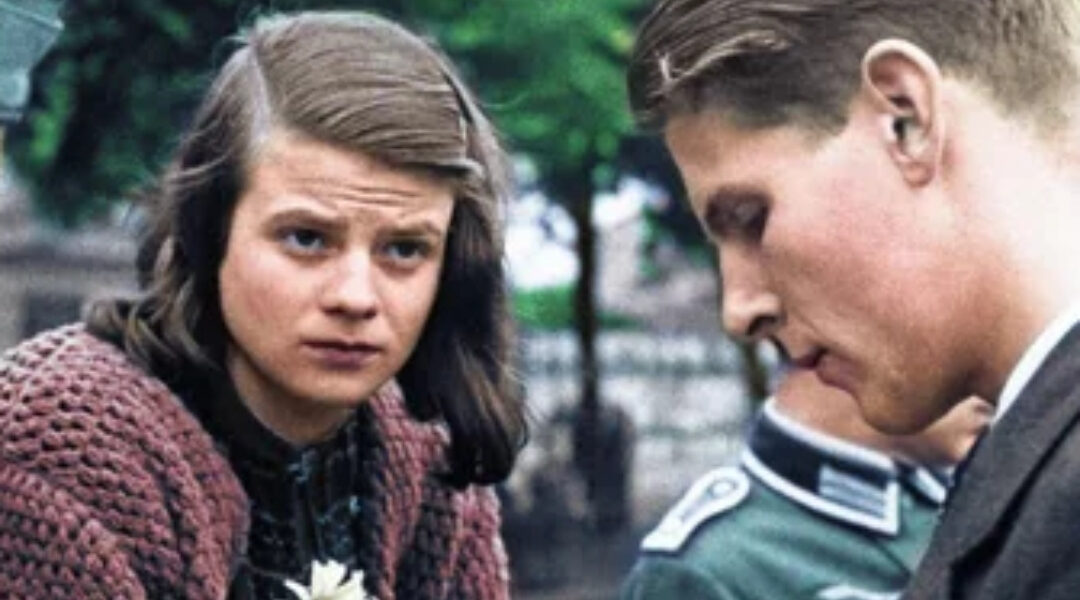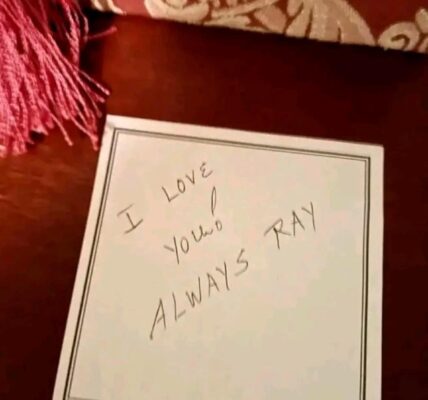She was only twenty-one when her courage defied an empire.

Her name was Sophie Scholl, and though her life was brief, her voice became immortal.
In 1942, Germany was drowning in fear. The Nazi regime demanded obedience, not thought. To speak against Hitler was to invite death — and most people chose silence. But Sophie could not. A philosophy student at the University of Munich, she believed that truth, even whispered, was stronger than any dictatorship.
Together with her brother Hans and a small group of friends, she founded a resistance movement they called “The White Rose.” They had no guns, no army, no armor — only words, printed in secret and scattered across the country like fragile seeds of hope.
Each leaflet they wrote was a plea to conscience: a call for Germans to open their eyes, to refuse complicity, to remember that evil thrives when good people stay silent. Late at night, they printed thousands of copies, their typewriter clattering like a heartbeat against the silence of terror. Then, at dawn, they placed them in mailboxes, classrooms, and train stations — messages of truth hidden in plain sight.

To read those leaflets was dangerous. To write them was an act of rebellion. Yet Sophie never wavered. “Somebody must begin,” she told her friends. “What we wrote and said is what many people are thinking. They just don’t dare say it aloud.”
Then, one cold morning in February 1943, she carried a suitcase filled with leaflets into the university courtyard. Standing at the top of a marble staircase, she looked down at the empty hall below. With a deep breath, she flung the papers into the air. They fluttered down like snow — white, silent, unstoppable.
A janitor saw her.
He reported her.
Within hours, Sophie and Hans were arrested. Interrogated for days, they faced torture, threats, and the full weight of the Gestapo. But Sophie did not break. When asked if she regretted her actions, she lifted her head and answered calmly:
“Somebody, after all, had to make a start. What we said and wrote is what many people think; they just don’t dare say it out loud.”
The trial was a mockery — brief, cruel, predetermined. The verdict: high treason.
The sentence: death.
On February 22, 1943, Sophie, Hans, and their friend Christoph Probst were led to the guillotine. Witnesses said she stood tall, her face pale but peaceful. As she walked to her execution, she turned to a window, where sunlight streamed faintly through the glass, and whispered her final words:
“The sun still shines.”
It was the last truth she ever spoke — and the one that endures.
Sophie Scholl died at twenty-one, but her defiance outlived the regime that killed her. The White Rose was crushed, yet its message spread through Germany and beyond: that even in a world ruled by fear, courage can bloom quietly, like a flower breaking through stone.
She did not fight with hatred. She did not scream or flee. She simply stood for what was right — and paid the price.
Her story is not one of death, but of light — the kind that no darkness can ever extinguish.
And every time someone, somewhere, chooses truth over fear…
the sun still shines.




